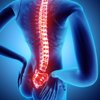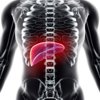Fritextsökning
Artiklar per år
Innehållstyper
-

Förlikning om canceranklagelser mot storsäljande läkemedel
Det franska läkemedelsbolaget Sanofi har nått en principöverenskommelse i USA om cirka 4 000 av de fall där företaget stämts för att inte ha varnat patienter om att det numera indragna läkemedlet Zantac mot halsbränna kan framkalla cancer.
-

Ny chefredaktör på Läkartidningen
Åsa Uhlin har utsetts till ny chefredaktör på Läkartidningen efter avgående Pär Sandell.
-

Chans för företag i sjukvårdsektorn att delta i återuppbyggnaden av Ukraina
Mässan Rebuild Ukraine erbjuder en möjlighet för svenska företag i sjukvårdssektorn att delta i återuppbyggnaden av Ukraina. Life Science Swedens chefredaktör Samuel Lagercrantz meddelar att Life Science Sweden och systertidningen Medtech Magazine, tillsammans med Ny Teknik och hållbarhetsbyrån Forever Sustainable, nu bjuder in svenska företag att delta i en svensk paviljong på mässan.
-

Jan Holmgren to receive award for the development of cholera vaccine
Researcher Jan Holmgren is being awarded for the development of the first effective drinkable cholera vaccine. The award is given by the International Vaccine Institute (IVI) and vaccine company SK bioscience.
-

The life science strategy – what the industry wants
The process of updating the national life science strategy has begun at the government’s life science office. According to industry stakeholders, Sweden’s competitiveness, the accessibility of health data and the integration of innovation in healthcare are some of the points that are essential to review.
-

Nya råd om ryggmärgsstimulering: Använd bara när annat inte hjälper
Elektrisk stimulering av ryggmärgen kan användas mot långvarig smärta – men enbart i de fall konventionell smärtbehandling inte hjälper. Så lyder en ny rekommendation från MTP-rådet.
-

Ny rapport: Bolagen fortsatt optimistiska om svensk hälsoexport
Trots oro i omvärlden och osäkerhet kring världsekonomin råder optimism bland svenska företag inom hälsoexport, enligt en ny rapport.
-

Anna Törner: ”Orphan Designation – the "petite robe noire" of drug development”
It is easy to cling to various regulatory incentives, like orphan designation, and other expedited pathways, without understanding what they truly mean or whether they are indeed right (or wrong) for the current project, Anna Törner writes in a column.
-

Nytt miljardförvärv stärker Astra Zeneca inom radiofarmaka
Astra Zeneca satsar inom radioaktiva läkemedel genom att köpa Fusion Pharmaceuticals för upp till 2,4 miljarder dollar, motsvarande drygt 25 miljarder kronor.
-

Första behandlingen mot vanlig leversjukdom godkänd i USA
Efter många år av utveckling har nu för första gången en behandling mot fettlever med leverskada godkänts av det amerikanska läkemedelsverket FDA.
-

Venom from the deathstalker carries radiopharmaceuticals to the brain
In order to target cancerous brain tumours with radionuclides, the problematic blood-brain barrier must first be crossed. Life Science Sweden has visited a KI researcher who is trialling an unusual approach ‒ using scorpion venom.
-

From Valneva to the CEO position at NorthX – “I saw it as a great opportunity”
A new cell therapy for leukaemia, a vaccine in tablet form against cholera, and a proprietary mRNA line with the potential capacity to supply the entire Nordic region with vaccines during a future pandemic. These are some of the projects underway
-

“Don’t postpone the transition to IVDR”
Operators who have not yet started to adapt to the requirements of the new EU IVDR regulation are running out of excuses. This is the opinion of Helena Dzojic, Head of Unit at the Swedish Medical Products Agency, who continues to persistently spread her
-

”Vem ska betala för framtidens läkemedel?”
”Är det jag eller världen som är snurrig?” Anna Törner reflekterar kring ett aktuellt patientfall, privat betalningsvilja och vad som egentligen är rättvist eller orättvist.
-

KI’s new super machine measures brain activity in real-time – “A very expensive hairdo”
Using brand-new, super-advanced equipment, researchers at Karolinska Institutet can now measure brain activity in real-time, with higher resolution than previously possible. “This opens up fantastic opportunities”, says brain researcher Daniel Lundqvist.
-

Raised millions to develop a treatment for ´butterfly children´
Fragile as a butterfly’s wing – that’s how people living with Epidermolysis Bullosa are usually described. The Lund-based company Xinnate recently raised SEK 100 million in a new share issue to finance the development of a treatment they hope will give
-

Danska life science-industrin står för rekordhög export
Den danska exporten av life science-produkter har ökat explosionsartat, med en tillväxt på 227 procent sedan 2008 och utgjorde 2023 så mycket som 19 procent av landets totala varuexport.
-

Utvecklar behandling till ”fjärilsbarn” – tog in 100 miljoner
Skör som en fjärilsvinge, så brukar man beskriva sjukdomsbilden för de som lever med Epidermolysis Bullosa. Lundabolaget Xinnate tog nyligen in 100 miljoner kronor i en nyemission för att finansiera utvecklingen av en behandling de hoppas ska ge drabbade en förbättrad livskvalitet.
-

Rising interest in CRISPR treatments
Treatments using CRISPR technology are emerging as one of the hottest medical trends in the United States – and the FDA is doing its best to promote the development.
-

Anna Törner: “My quantified life”
“The expression ‘you can’t see the forest for the trees’ feels newly relevant in the context of wearables. One can easily get caught up in the idea that the more we measure, the more we know,” Anna Törner writes in a column.
-

Failed to read the fine print – lost his life’s work
A celebrated CEO and co-founder of a pioneering lab company one moment – the next, fired, kicked out and written out of the company’s history. This is the story of a Swedish entrepreneur who was going to raise US venture capital to strengthen his company but lost his life’s work instead.
-

Ingrid Lönnstedt: Demystification of the power of a scientific study
”You surely do realize that even the smallest changes in study assumptions may influence the estimated sample size needed. And how is it even possible to guess the magnitude of the treatment effect before performing the study?” writes Ingrid Lönnstedt in a column.
-

Study: Popular diabetes drug may be effective against liver disease
After its success in diabetes and weight loss, a new potential therapeutic area has been identified for Ozempic and other GLP1 analogues. A new study links the drug type to a reduced risk of liver damage.
-

”Information security must become part of the Swedish life science strategy”
Sweden needs knowledge security to stand strong in the global competition, writes Björn Ursing in an opinion article.